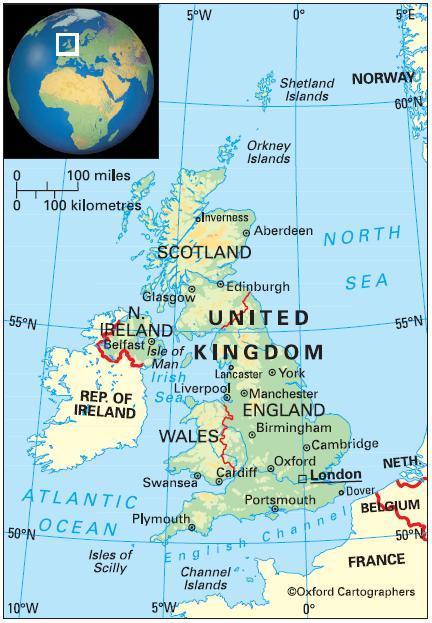The United Kingdom has signaled a potential shift in its Middle East policy, announcing that it will recognize a Palestinian state if Israel does not agree to a ceasefire in Gaza. This development comes amid escalating violence and mounting international calls for an end to hostilities. The UK government’s stance underscores growing frustration over the ongoing conflict and highlights the increasing pressure on Israel to halt military operations in the Gaza Strip.
UK Signals Recognition of Palestinian State Amid Gaza Conflict Escalation
The U.K. government has announced a conditional stance regarding its recognition of a Palestinian state, tied closely to ongoing developments in the Gaza conflict. British officials emphasized that recognizing Palestine would become a concrete policy if Israel fails to agree to an immediate and lasting ceasefire in Gaza. This move marks a significant diplomatic signal amid rising international pressure, reflecting growing concern over the escalating humanitarian crisis and intense military exchanges. Prime Minister’s office outlined key factors driving this potential shift:
- Escalation in civilian casualties and infrastructure damage in Gaza
- Stalled diplomatic efforts for conflict resolution
- Increasing calls from UK parliament members and public opinion
Critics caution that this approach could further complicate UK-Israel relations while supporters argue it could prompt renewed dialogue towards peace. The U.K.’s conditional recognition plan also fits within a broader international trend of reassessing alliances and diplomatic strategies amid protracted conflicts. Below is a comparative summary of the U.K.’s potential recognition criteria and expected outcomes:
| Condition | Expected Outcome | Timeline |
|---|---|---|
| Israel agrees to Gaza ceasefire | Status quo maintained, diplomatic negotiations continue | Immediate to 1 month |
| No ceasefire within 1 month | U.K. officially recognizes Palestinian state | 1 to 3 months |
| Increased international support | Potential multilateral recognition efforts | 3+ months |
Analyzing the Diplomatic Implications for UK-Israel Relations and Middle East Peace Efforts
The UK’s stated intent to recognize a Palestinian state contingent on Israel’s acceptance of a Gaza ceasefire introduces a significant shift in its diplomatic posture, signaling a potential recalibration of alliances and strategies in the Middle East. This move, reflecting growing frustration over prolonged conflict and humanitarian crises, places London at a crossroads between maintaining its historic ties with Israel and addressing mounting domestic and international calls for Palestinian statehood. It underscores an increasingly assertive British stance that could pressure Israel diplomatically, while also invigorating Palestinian leadership with renewed legitimacy on the world stage.
Key diplomatic implications include:
- Potential strain on UK-Israel relations, with possible repercussions in security and intelligence cooperation.
- Increased leverage for the UK within the European Union and the wider international community advocating for peace negotiations.
- Heightened expectations for concrete peace efforts amid skepticism about the immediate feasibility of ceasefire agreements.
| Aspect | Potential Impact |
|---|---|
| UK-Israel Security Ties | Risk of temporary cooling and diplomatic protests |
| Palestinian Recognition | Boosts Palestinian diplomatic efforts internationally |
| Peace Process Momentum | Could either catalyze talks or deepen stalemates |
| Regional Stability | May influence wider Middle East dynamics and alignments |
Strategic Recommendations for UK Policymakers to Balance Regional Stability and Humanitarian Concerns
In navigating the complexities surrounding the recognition of a Palestinian state, UK policymakers must carefully weigh the imperative of regional stability against pressing humanitarian concerns. A strategic approach would involve diplomatic engagement with all stakeholders, promoting dialogue that prioritizes an immediate ceasefire in Gaza. This could help alleviate civilian suffering while setting the stage for sustainable peace negotiations. Moreover, the UK can leverage its international influence by coordinating with European allies and Middle Eastern partners to pressure Israel into agreeing to humanitarian pauses without undermining Israel’s legitimate security concerns.
Key strategic recommendations include:
- Facilitating high-level multilateral talks aimed at securing a ceasefire and opening humanitarian corridors
- Offering conditional recognition of a Palestinian state as a diplomatic lever contingent upon tangible progress toward peace
- Increasing humanitarian aid to Gaza while ensuring it reaches vulnerable populations regardless of political blockades
- Enhancing intelligence-sharing with regional actors to monitor ceasefire compliance and prevent escalations
| Policy Aspect | Recommended Action | Expected Outcome |
|---|---|---|
| Diplomatic Engagement | Lead EU consensus on ceasefire negotiations | De-escalation and trust-building |
| Humanitarian Aid | Increase funding, ensure access | Reduced civilian suffering |
| State Recognition | Use as conditional incentive | Pressure for peace concessions |
| Security Coordination | Share intelligence with allies | Monitoring and prevention of conflict |
To Wrap It Up
As the U.K. signals its willingness to recognize a Palestinian state should Israel reject calls for a ceasefire in Gaza, the international community watches closely. This move underscores the mounting pressure on all parties to seek an immediate end to the violence and to engage in meaningful dialogue. How this stance will influence the broader Middle East peace process remains to be seen, but it undeniably marks a significant moment in diplomatic efforts surrounding the conflict.




